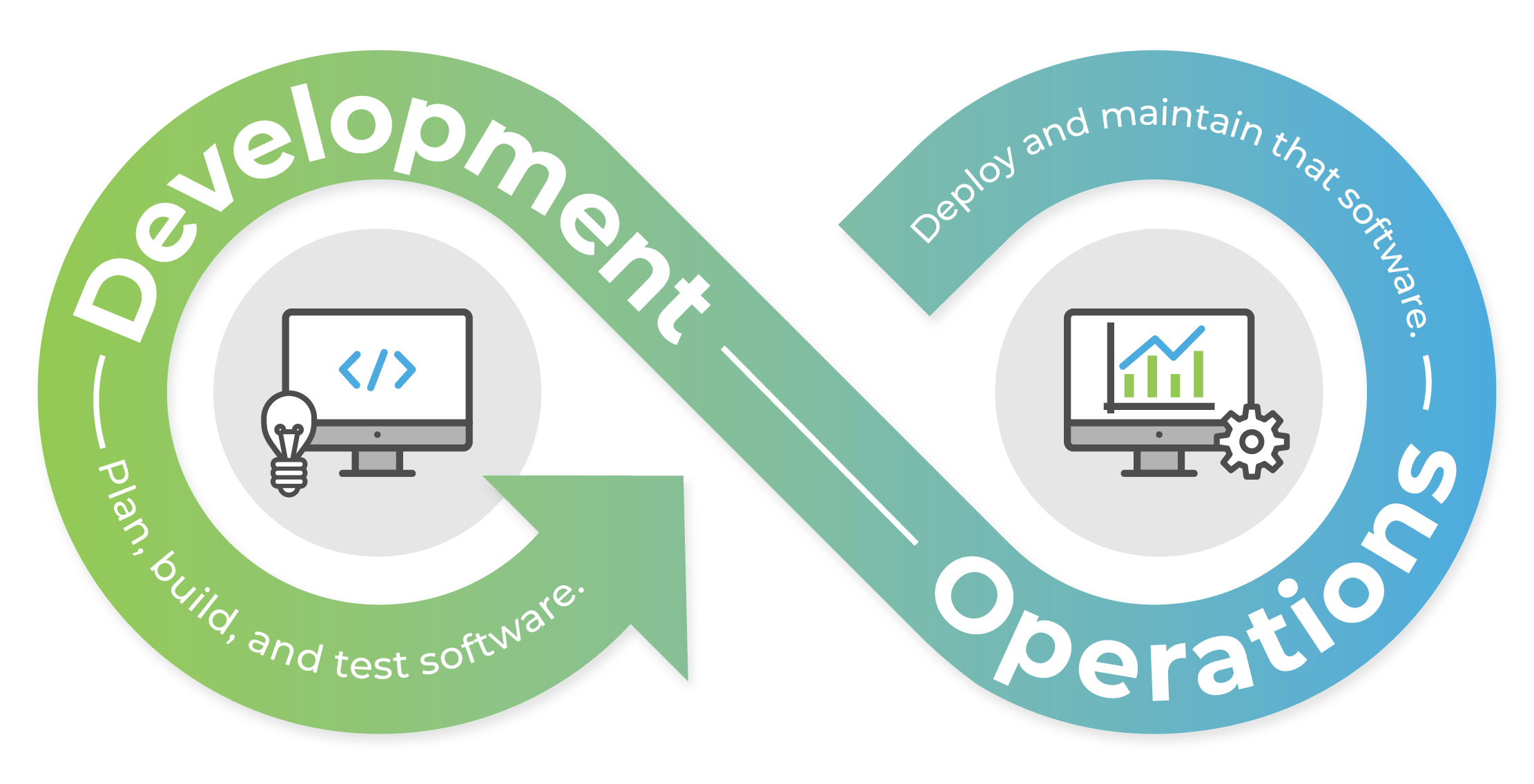As businesses increasingly rely on cloud-computing, DevOps (Development + Operations) has become a framework for continuously delivering value to your customers. DevOps also addresses evolving business challenges across an entire organization, not just within the IT team. But what exactly is DevOps? Read on to find out what it is, what some useful tools are, and what features are important in choosing DevOps tools.
What is DevOps?

DevOps refers to a set of practices that integrates and automates processes that used to run separately in Development and in Operations. Developers plan, build, and test software, while those in IT deploy and maintain that software.
In the DevOps framework, these two groups work together in a continuous feedback loop to deliver quality products more quickly. DevOps is often depicted as a figure 8 loop to show just how tightly interconnected development and operations have become.
Related: Key DevOps Principles & Practices for Success
Types of DevOps Tools
There are a range of DevOps tools available on the market, like configuration management, container management, test automation, and many more. Here, we’ll focus on those that facilitate automation, collaboration, communication, project management, andserver management across your company’s tech stack.
Automation
Take the need for human intervention out of the value stream for tasks like testing and bug-fixing with automation tools. CEO and co-founder of Flugel Diego Woitasen explains the importance of coding your automation on top of your infrastructure: “Once you have defined your architecture, you need to start coding the automation of your infrastructure. This is a must in cloud environments, you do not build things manually, you build automation to build your infrastructure. You need the architecture first because that’s going to represent the building blocks (or infrastructure as code modules).” Flugel’s team can write that code for you, and it’s yours to keep, even after a contract with Flugel expires.
In terms of scalability, Jenkins helps scale automation as your infrastructure grows. Vagrant focuses on automation within the workflow. Chef is also a highly-rated provider of automation tools for configuration management in DevOps. Finally, Ansible offers an automation platform to cover a range of tasks and processes in your DevOps.
Collaboration
A DevOps tool for collaboration enables users to work effectively with one another. These tools often feature automation to take care of repetitive tasks, so that DevOps can focus their energy on the processes that allow application availability and scalability. Basis Technologies, for example, offers a centralized dashboard to facilitate collaboration across different teams. Docker also makes it easier for DevOps to work together and allows for easy image storage and management. Katalon TestOps helps to streamline the workflow for DevOps teams.
Also read: Choosing the Right Containerization: 10 Alternatives to Docker
Communication
Communication tools for DevOps span a few different functions: information sharing, day-to-day communication, and user notifications. Some DevOps tools, like Splunk, facilitate exchange of information across verticals in your company, whether you’re in software development, sales, or an executive level business administrator. In addition, some tools, like Katalon TestOps, focus more on internal DevOps team communication that isn’t necessarily accessible to stakeholders outside of the software development lifecycle (SDLC) process. Finally, other tools, like Icinga, will alert users of application issues.
Project Management
There are some project management tools out there for DevOps to track progress in the SDLC. An important thing to keep in mind is change management, since everything may not go according to plan. Jenkins seamlessly integrates change into projects and supports continuous integration and delivery. Puppet Enterprise is another DevOps tool that allows you to oversee the entire infrastructure. Like Jenkins, it also allows you to detect and take care of any issues that may pop up in the workflow, but it also features workflow visualization. If you want your DevOps processes to be accessible to others outside of the DevOps team, consider Rudder. It can be configured, according to non-expert, expert, or DevOps manager use.
Server Management
For successful DevOps, you need a tool that will monitor the health of your server, whether on-site, cloud, or hybrid. Solarwinds offers a variety of tools to find and fix server issues. Nagios offers something similar but boasts an outstanding log management tool. The Scalyr DevOps platform features a Scalyr Agent that can be dropped in any server to immediately start monitoring your server and deliver updates in real-time. Flugel specializes in cloud management and optimization that, among other things, takes care of processing alerts, collecting information on your key metrics, and responding swiftly to incidents.
Choosing a DevOps Tool: Key Features to Look Out For
According to Woitasen, the challenges that most DevOps teams face, especially in SMBs, include security and compliance, cloud automation, costs, productivity, observability, and availability and scalability. The DevOps tools listed above will help your DevOps team tackle most or all of these challenges. In light of these key areas of concern in DevOps, here are some features that you may want to consider when choosing tools that are right for your business:
- Analytics is crucial for accessing the data you want, when and how you want it via reporting, data visualization, metrics, log management, etc.
- Compliance reporting ensures that your DevOps is conducted according to governmental and industry standards to avoid hefty fines.
- Integration might be important to you if you’re currently using a platform like AWS or Microsoft Azure, as many of the tool vendors listed above offer API.
- Streamlining: Since DevOps is about a workflow rather than a horizontal step-by-step process, any tool that streamlines and automates tasks in the SDLC is worth considering.
There are a range of DevOps tools, more than can be listed here, and your organization will not necessarily need all of them. There is no one-size-fits-all approach to choosing DevOps tools.
A final note to consider is that choosing the right tools is one thing, but the tools are only part of the process. It’s important to also cultivate a DevOps culture and mindset in your organization because key stakeholders need to work together on cross-collaboration and continuous development, testing, deployment, and feedback.

